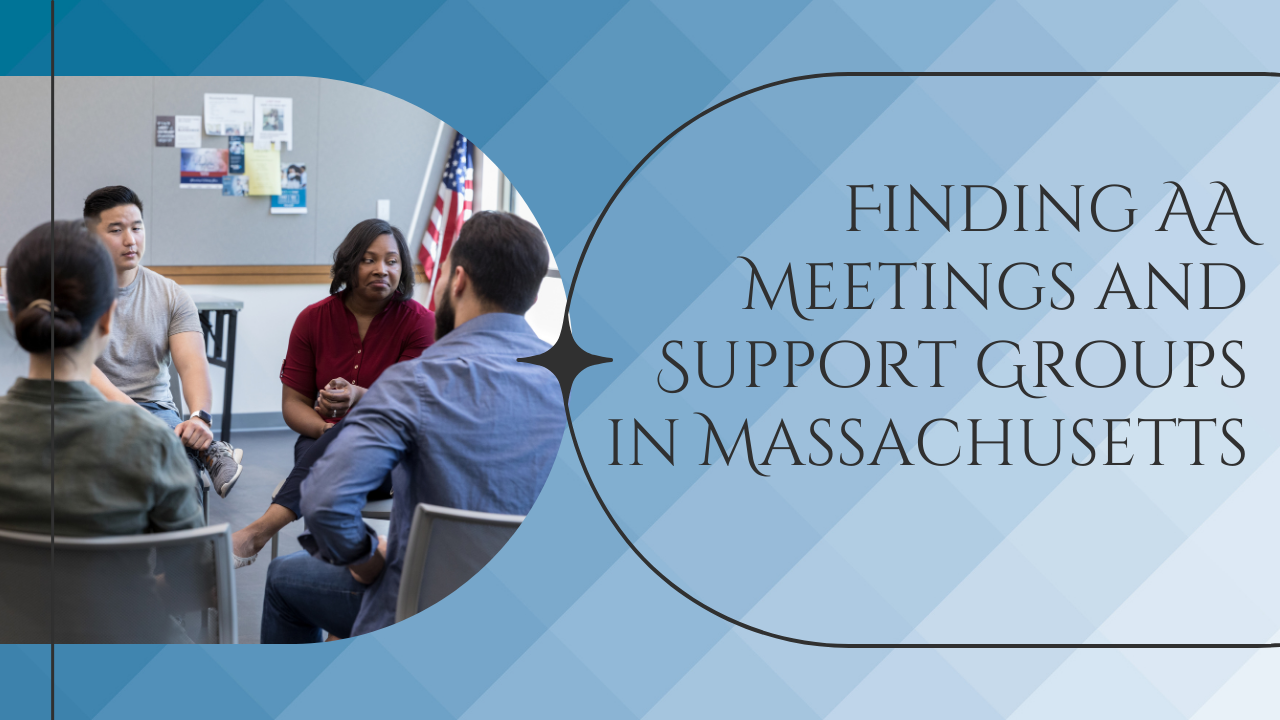Finding AA meetings and support groups in Massachusetts can be a daunting task for those in need of help. However, it is important to remember that there are resources available to those struggling with addiction. Massachusetts has a strong recovery community and a variety of options for those seeking support.
One option for finding AA meetings and support groups is to utilize online resources. The Massachusetts Area of Alcoholics Anonymous website provides a list of meetings throughout the state, as well as resources for those seeking help. Additionally, websites such as InTheRooms.com offer virtual meetings and online support groups for those unable to attend in-person meetings.
Another option is to reach out to local treatment centers or healthcare providers for information on AA meetings and support groups in the area. Many treatment centers host meetings or have connections to local support groups. Healthcare providers can also provide referrals and information on resources available to those in need.
Finding AA Meetings in Massachusetts
If you or someone you know is struggling with alcohol addiction in Massachusetts, finding AA meetings and support groups can be a crucial step in the recovery process. Here are a few resources to help you locate AA meetings in Massachusetts:
Online Resources and Directories
There are several online resources and directories that can help you find AA meetings in Massachusetts. One of the most popular resources is the Alcoholics Anonymous website, which has a searchable directory of meetings by state and city. Another useful website is the Massachusetts Area 30 Alcoholics Anonymous website, which provides a list of meetings in the state, as well as resources for newcomers and information on how to start a new meeting.
AA Massachusetts Central Service
AA Massachusetts Central Service is a non-profit organization that provides support and resources for AA meetings throughout the state. They can help you locate meetings in your area, as well as provide information on starting a new meeting. They also offer a 24-hour hotline for those who need immediate help or support.
When attending an AA meeting, it’s important to remember that these meetings are designed to be a safe and supportive space for those struggling with alcohol addiction. Many people find that attending meetings regularly can be a helpful part of their recovery process.
d trauma to seek professional help to address the underlying issues that may be contributing to their addiction. With the right support and treatment, individuals can overcome addiction and find a path to recovery.
Support Groups Beyond AA
In addition to Alcoholics Anonymous (AA), there are other support groups available for those struggling with alcohol addiction in Massachusetts. These groups provide a different approach to recovery and may be a better fit for some individuals.
SMART Recovery
SMART (Self-Management and Recovery Training) Recovery is a science-based program that offers a 4-point approach to addiction recovery. This approach includes building and maintaining motivation, coping with urges, managing thoughts, feelings, and behaviors, and living a balanced life. SMART Recovery meetings are available in-person and online, and are open to anyone seeking support in their recovery journey.
Secular Organizations for Sobriety
Secular Organizations for Sobriety (SOS) is a non-profit network of autonomous, non-professional local groups dedicated solely to helping individuals achieve and maintain sobriety. SOS meetings are based on a secular, rational approach to recovery and are open to anyone seeking support in their recovery journey.
Both SMART Recovery and SOS offer a different approach to recovery than AA, and may be a better fit for individuals who prefer a secular or science-based approach to addiction recovery. It is important to explore all options and find the right support group for your individual needs.
Preparing for Your First Meeting
Recovering from addiction is a challenging journey, particularly for those who have experienced trauma. Trauma can impact a person’s ability to cope with stress and regulate their emotions, which can increase their risk of relapse. In this section, we will explore some of the challenges that individuals with a history of trauma may face during their recovery journey.
What to Expect
Attending your first AA meeting or support group can be nerve-wracking, but it’s important to remember that everyone in the room is there for the same reason: to seek help and support in their recovery journey. Expect to be greeted warmly and welcomed into the group.
Most meetings follow a similar format, with members sharing their experiences and offering support to one another. You may be asked to introduce yourself and share a bit about why you’re there, but this is not mandatory. It’s okay to simply listen and observe during your first meeting.
Meeting Etiquette
There are a few important guidelines to follow when attending AA meetings and support groups. First and foremost, respect the anonymity of others in the group. Anything shared in the meeting should be kept confidential and not discussed outside of the group.
It’s also important to be respectful of others’ opinions and experiences. Avoid interrupting or talking over others, and refrain from giving unsolicited advice. Remember that everyone’s recovery journey is unique and personal.
Finally, be mindful of your behavior and language during the meeting. Avoid distracting behaviors such as using your phone or fidgeting, and refrain from using language that may be triggering or offensive to others in the group.
By following these simple guidelines, you can help create a supportive and welcoming environment for everyone in the group.
At Waterside Recovery Centers we pride ourselves on providing the top addiction treatment in Massachusetts. With a range of evidence-based, client-focused and individualized treatment offerings, we are able to provide the ideal support for those seeking recovery from substance addiction. Please feel free to reach out to our help line at anytime.
(866)671-8620




